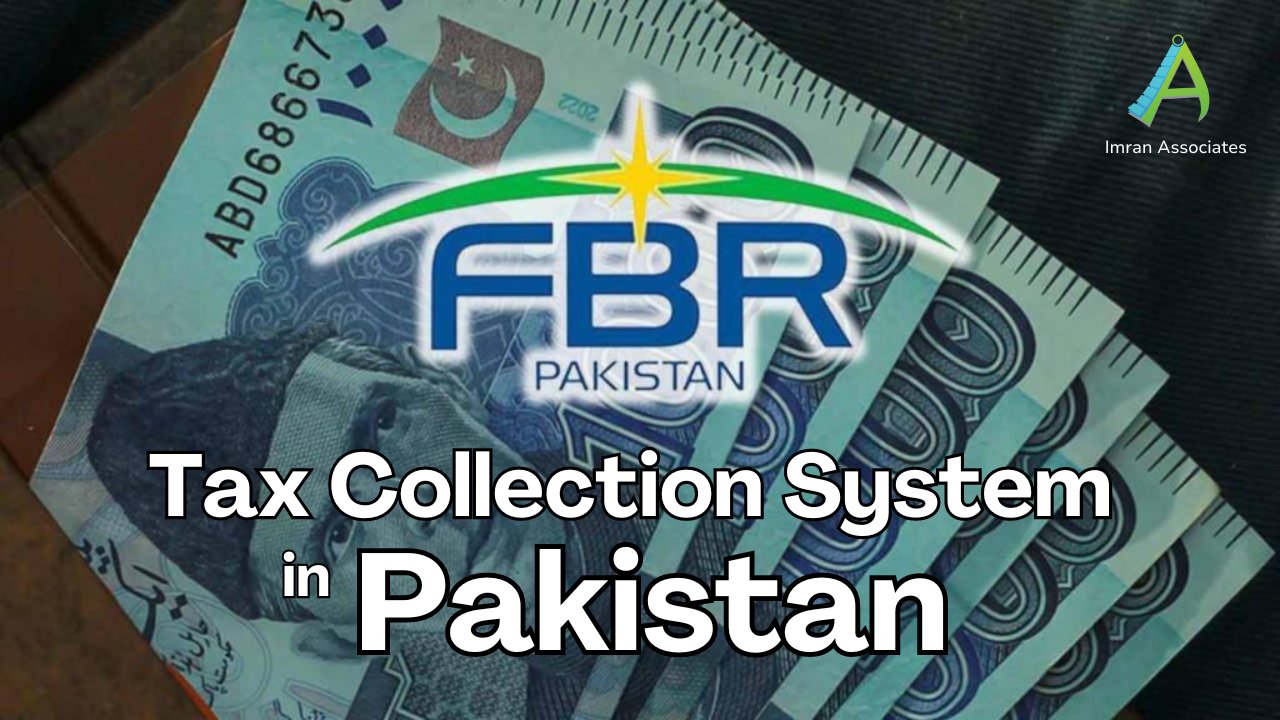The Federal Board of Revenue (FBR) is the primary tax authority in Pakistan. It operates under the Ministry of Finance, overseeing the enforcement of fiscal laws. FBR is tasked with:
- Tax Collection in Pakistan: Collecting direct and indirect taxes, ensuring that revenue targets are met.
- Policy Implementation by FBR: Executing and monitoring tax policies set by the government.
- Regulation: Maintaining checks and balances to prevent tax evasion and ensure compliance.
- Enforcement: Prosecution of tax-related offenses and recovery of arrears.
- Facilitation: Providing services and support to taxpayers for efficient tax processing.
FBR plays a crucial role in Pakistan’s financial stability and public welfare.
Mechanisms of Tax Collection by FBR (Federal Board of Revenu) in Pakistan
The Federal Board of Revenue (FBR) in Pakistan employs several mechanisms to ensure effective tax collection:
- Direct Taxes: These include income tax, corporate tax, and property tax, which are collected directly from individuals and businesses based on their earnings and assets.
- Indirect Taxes: Sales tax, federal excise duty, and customs duties are indirect taxes collected on goods and services at various production and import stages.
- Automation: FBR has integrated technology to automate tax processes, enhancing transparency and efficiency.
- Withholding Tax: Utilizing third parties to withhold a specified tax amount from income sources, ensuring compliance and reducing evasion risks.
- Audit and Enforcement: Regular audits and strict enforcement measures ensure adherence to tax laws and promote compliance.
Problems in Tax Collection in Pakistan
The Federal Board of Revenue (FBR) faces numerous challenges/problems in tax collection:
- Tax Evasion and Avoidance:
- Individuals and corporations often find loopholes to minimize tax liabilities.
- Informal Economy:
- A significant portion of Pakistan’s economy operates informally, making it difficult to track and tax.
- Limited Technological Infrastructure:
- Outdated systems hinder effective tax collection and enforcement.
- Low Taxpayer Compliance:
- Cultural resistance and lack of trust in the system lead to poor tax compliance.
- Bureaucratic Inefficiencies:
- Red tape and corruption within FBR undermine efficient tax collection.
- Policy Inconsistencies:
- Frequent changes in tax laws create confusion and enforcement difficulties.
Strategies for Improving Tax Collection
The Federal Board of Revenue (FBR) in Pakistan can enhance tax collection through various strategic measures:
- Automation and Digitalization: Implementing advanced software systems to automate tax processes, ensuring accuracy and reducing human errors.
- Capacity Building: Training tax officials to handle complex matters improves efficiency and effectiveness.
- Public Awareness Campaigns: Educating citizens about tax obligations and benefits, encouraging voluntary compliance.
- Strengthening Enforcement: Intensifying audits and inspections to deter tax evasion and penalize defaulters.
- Broadening the Tax Base: Identifying and taxing new sectors previously untaxed or under-taxed to increase revenue.
Benefits of Efficient Tax Collection by FBR
Efficient tax collection by the Federal Board of Revenue (FBR) in Pakistan brings multiple benefits:
- Enhanced Public Services: Increased revenue enables the government to improve healthcare, education, and infrastructure.
- Economic Stability: A steady flow of income strengthens economic policies and mitigates fiscal deficits.
- Attraction of Foreign Investment: Reliable tax systems build investor confidence and attract foreign capital.
- Poverty Reduction: Funds collected help implement welfare schemes that reduce poverty and inequality.
- National Security: Sufficient revenue supports defense and law enforcement, ensuring national security.
- Lowering Corruption: Streamlined tax systems reduce opportunities for fraudulent activities.
Conclusion:
Looking ahead, the FBR in Pakistan must address several critical areas to enhance tax collection mechanisms and resolve persisting concerns. Strengthening digital infrastructure, intensifying enforcement against tax evasion, and fostering taxpayer education are pivotal. Additionally, the collaboration of public and private sectors can spur innovative solutions.
- Digital Infrastructure Improvements: Enhancing e-filing systems to streamline processes.
- Enforcement Measures: Amplifying audits and penalties for non-compliance.
- Taxpayer Education: Initiatives to inform the public about tax obligations and benefits.
Future policy reforms should emphasize transparency, simplify current regulations, and incentivize voluntary compliance to ensure long-term efficacy.

